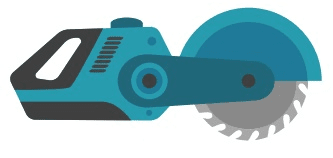What To Look For To Determine If You're Prepared To Miter Saws
Mastering the Miter Saw: An In-Depth Guide
Miter saws are indispensable tools in both professional and DIY workshops, celebrated for their precision and flexibility. Whether powertoolsonline.uk 's for cutting molding, framing, or crafting custom-made furnishings, comprehending the features, types, and best practices for utilizing a miter saw can substantially boost the quality of your jobs. This post looks into everything you need to understand about miter saws, consisting of types, features, tips, and commonly asked concerns.
Understanding Miter Saws
A miter saw is an effective tool created for making precise crosscuts and miters in a workpiece. It includes a circular blade mounted on a pivoting arm, enabling users to lower the spinning blade down onto the material and cut at various angles.
Types of Miter Saws
Miter saws come in numerous configurations, each suited for various types of cuts and tasks:
Type
Description
Ideal Uses
Requirement Miter Saw
Standard design for making angled cuts.
Easy furniture jobs, framing.
Compound Miter Saw
Can tilt the blade for compound cuts (both miter and bevel).
Crown molding, image frames.
Double Compound Miter Saw
Offers both left and right bevel abilities.
More intricate cuts, angles in both instructions.
Sliding Miter Saw
Functions a sliding arm that enables the blade to travel forward.
Larger products, such as deck boards.
Cordless Miter Saw
Battery-operated for mobility.
Job websites or remote places without power.
Key Features to Consider
When choosing a miter saw, consider the following functions:
- Blade Size: Most frequently comes in 10-inch and 12-inch sizes; bigger blades permit larger cuts.
- Cutting Capacity: The capability to cut through thicker products is necessary for specific jobs.
- Bevel Adjustment: Dual-bevel saws use higher flexibility by allowing cuts in both directions.
- Dust Collection: A good dust collection system reduces mess and improves presence.
- Laser Guide: A laser guide can boost accuracy by projecting a line on the material where the cut will occur.
Tips for Using a Miter Saw
To attain the very best outcomes from a miter saw, here are some useful pointers:
- Always Wear Safety Gear: Safety glasses, hearing security, and dust masks are necessary to secure yourself while utilizing the tool.
- Secure Your Workpiece: Use clamps or a stable workbench to ensure your product is strongly secured throughout cutting.
- Step Twice, Cut Once: Accurate measurements will conserve time and decrease waste.
- Utilize the Right Blade: Different blades are created for different products (wood, metal, etc). Picking the appropriate blade makes sure tidy cuts.
- Keep the Blade Sharp: A dull blade can result in rough cuts and can be unsafe. Regularly check and change blades as needed.
Frequently Asked Questions About Miter Saws
1. What is the distinction between a miter saw and a sliding miter saw?
A standard miter saw only allows the blade to pivot for angled cuts, while a sliding miter saw has a sliding mechanism that lets the user push the blade forward, enabling it to cut broader products.
2. Can I use a miter saw for rip cuts?
Miter saws are primarily developed for crosscuts; they are not suitable for rip cuts. If you require to perform rip cuts, consider utilizing a table saw.
3. How do I preserve my miter saw?
Regular maintenance includes cleaning the saw, checking the blade for wear, lubricating moving parts, and guaranteeing the fences remain square. Always refer to the producer's handbook for particular care directions.
4. What product can I cut with a miter saw?
Miter saws can cut a variety of materials, including softwood, hardwood, plywood, and even non-ferrous metals, depending upon the blade used.
5. Is a laser guide truly necessary?
While not definitely necessary, a laser guide can substantially boost precision, helping to visualize the cut line and leading to more accurate cuts.
Choosing the Right Miter Saw for Your Needs
With different choices offered, it can appear daunting to choose the ideal miter saw. Here are a couple of factors to consider that may assist:
Consider Your Projects
- For Occasional DIY Projects: A basic miter saw might be sufficient if your projects are very little and simple.
- For Crown Molding or Advanced Carpentry: A compound or dual compound miter saw will supply the flexibility needed for intricate cuts.
- For Large Projects: If you're working with broader materials, a sliding miter saw will be essential for the extra cutting capability.
Spending plan Considerations
Miter saws vary substantially in cost. Here's a basic rate range:
Type
Rate Range
Requirement Miter Saw
₤ 100 – ₤ 300
Compound Miter Saw
₤ 200 – ₤ 500
Dual Compound Miter Saw
₤ 300 – ₤ 600
Sliding Miter Saw
₤ 300 – ₤ 700
Cordless Miter Saw
₤ 200 – ₤ 400
A well-selected miter saw can be an invaluable tool for achieving exact cuts in woodworking jobs. Comprehending the types, functions, and upkeep of miter saws will improve not only the quality of the cuts however likewise the enjoyment of the woodworking experience. Whether you're an experienced carpenter or a weekend DIYer, investing time in discovering and mastering your miter saw will lead to more efficient and enjoyable woodworking tasks.
Equipped with this details, you can confidently select the miter saw that best fulfills your needs and elevate your woodworking skills to brand-new heights!
